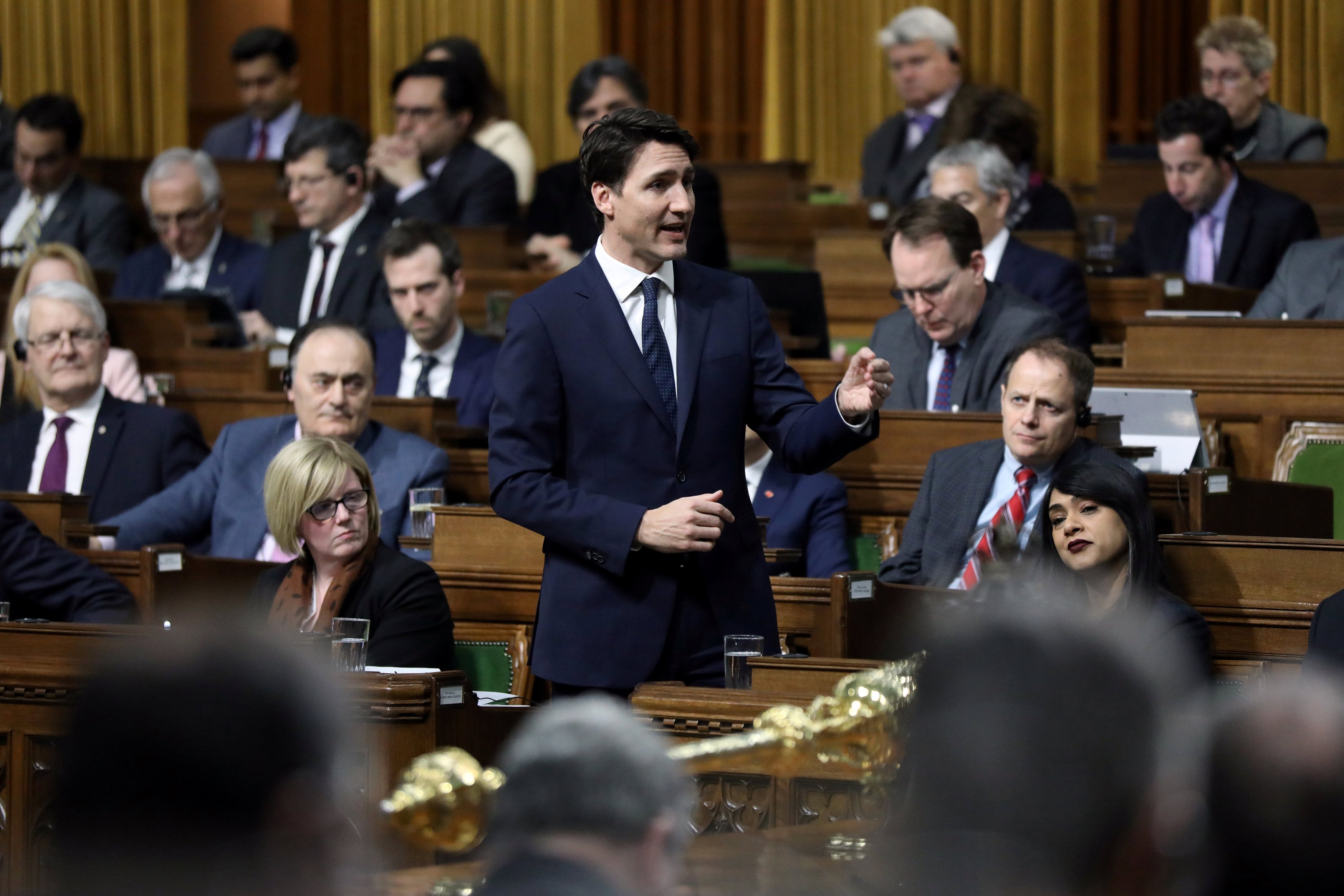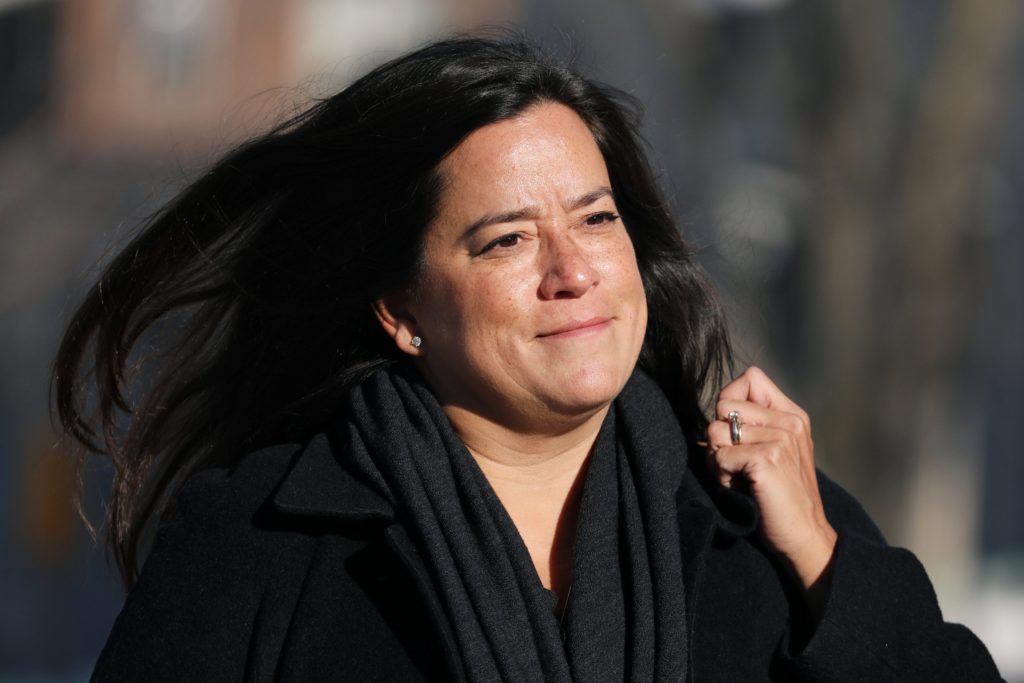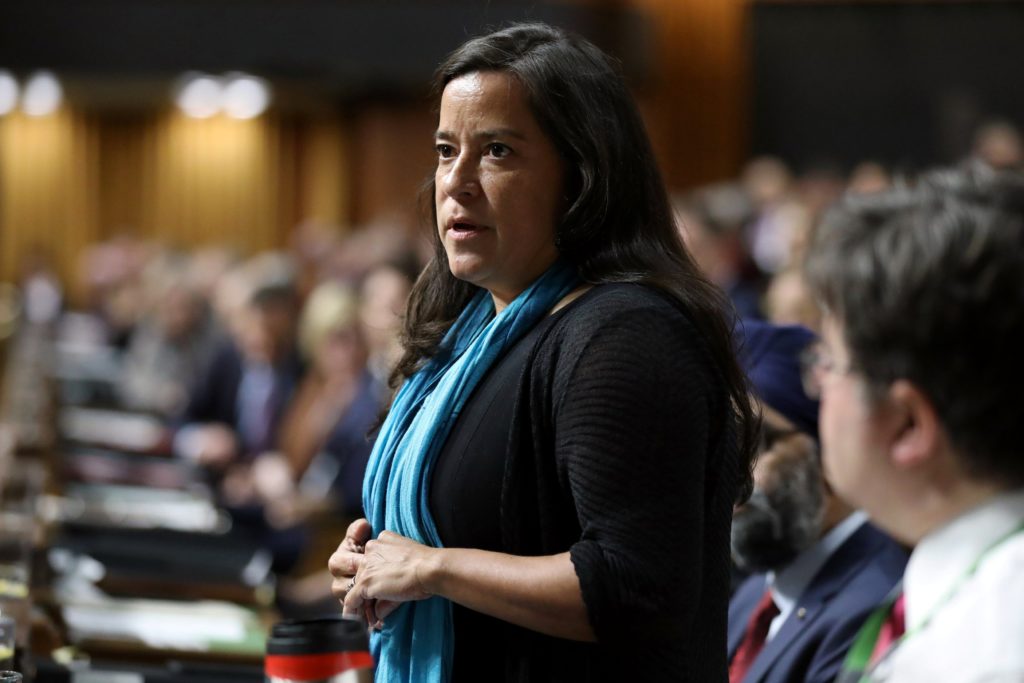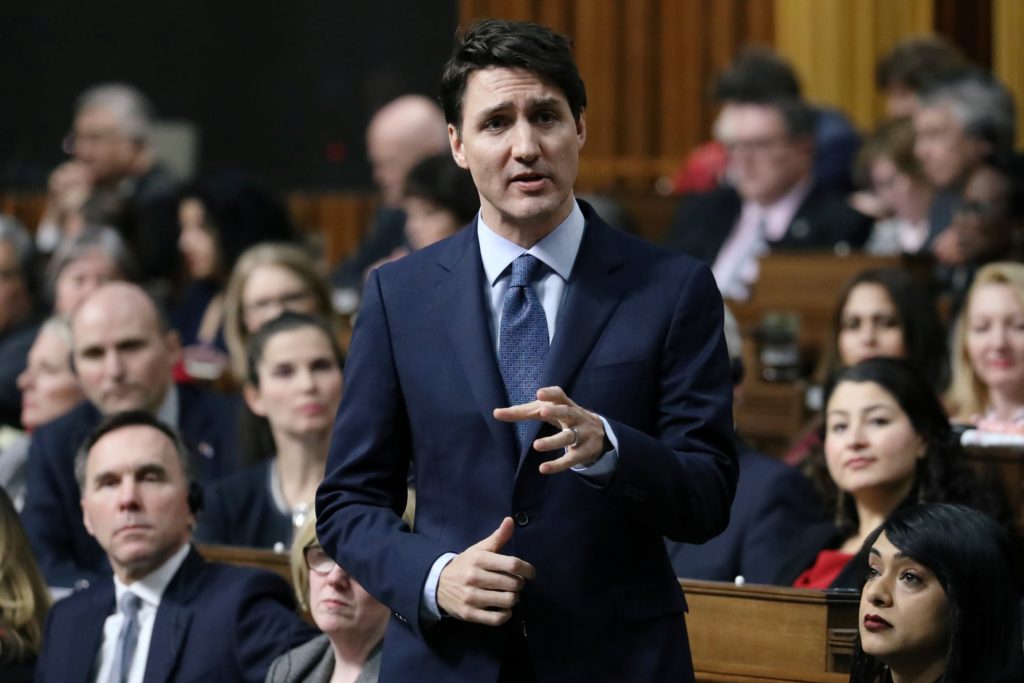Canada PM Trudeau calms restless MPs over shock resignations: sources
 Canada’s Prime Minister Justin Trudeau speaks during Question Period in the interim House of Commons in the West Block on Parliament Hill in Ottawa, Ontario, Canada, February 20, 2019. (Photo: Reuters)
Canada’s Prime Minister Justin Trudeau speaks during Question Period in the interim House of Commons in the West Block on Parliament Hill in Ottawa, Ontario, Canada, February 20, 2019. (Photo: Reuters) OTTAWA – Canadian Prime Minister Justin Trudeau has calmed restless legislators at a meeting to discuss two resignations that rocked his Liberal government, but side-stepped questions about how he planned to handle the crisis, party sources said.
Liberals say they are concerned about how Trudeau’s team is dealing with the fallout of a newspaper report that officials from his office put pressure on then justice minister Jody Wilson-Raybould last year to ensure construction firm SNC-Lavalin avoided a corruption and bribery trial.
Trudeau insists there was no wrongdoing. But Wilson-Raybould, demoted in a January reshuffle, quit on Feb. 12 and then Trudeau’s principal private secretary and close ally Gerald Butts resigned on Monday.
Liberals fret that the constant media focus on the matter could help knock the government off course ahead of a federal election in October.
Polls suggest the Liberals, once well ahead of their rivals, are now at risk of losing outright, or being reduced a minority government relying on other parties to survive. Minority administrations in Canada rarely last more than two years.
Liberal members of parliament, including Wilson-Raybould, met for almost three hours on Wednesday and had what participants called a useful session to clear the air.

“I’m very satisfied with the overall meeting we had,” said International Development Minister Marie-Claude Bibeau.
Trudeau’s office declined to give details of what had happened in the meeting.
One Liberal described the tone as polite and said “there were no naked raw emotions on the table”, even when Trudeau and Wilson-Raybould spoke.
But the Liberal, who asked for anonymity given the sensitivity of the situation, said Trudeau side-stepped questions about why exactly Butts quit and did not give a detailed idea of what the government planned to do next.
“We need to put this to bed. It’s exhausting to be on the defensive and the longer this goes on the harder, it will be to get our message out,” said a second Liberal.
Public Safety Minister Ralph Goodale, asked about the chances of the government losing its focus, said “we are working very hard to ensure that doesn’t happen.”

Trudeau is in no immediate danger, since Canadian political leaders are elected by party members at formal conventions and cannot be sacked after a snap vote by parliamentarians, as is the case in Britain and Australia.
A third Liberal said no one in the senior ranks of the party was talking about a leadership challenge, much less trying to arrange one.
Some Liberals complain about what they see as the excessive concentration of power in Trudeau’s office, in particular the leading roles played by Butts and Chief of Staff Katie Telford.
The potential political risks for Trudeau are clear. A Leger poll for the Canadian Press on who would make the best prime minister showed just 26 percent chose Trudeau, down seven percentage points from November 2018.
Others say Trudeau’s inner circle pays little attention to the concerns of back-bench legislators and have sidelined more experienced advisors.
Conservative Leader Andrew Scheer received 21 per cent support, down one point.

In another sign of unease, two Liberal legislators from Atlantic Canada – a part of the country where the party is expecting to lose seats in October – announced unexpectedly in the past week they are not running again.
Trudeau played down opposition demands for a full public inquiry into the matter, noting that the independent ethics commissioner has launched a probe. The House of Commons justice committee on Tuesday invited Wilson-Raybould to speak.
Wilson-Raybould is consulting lawyers about how much she can reveal about what happened with SNC-Lavalin.
Trudeau is a self-declared feminist and his initial comments criticising Wilson-Raybould’s decision to resign might also cause problem with women voters.
After Wilson-Raybould quit, some media organisations ran stories and cartoons denigrating her and Trudeau said he had apologised to the former minister on Wednesday for not condemning the commentaries earlier.
Reuters


